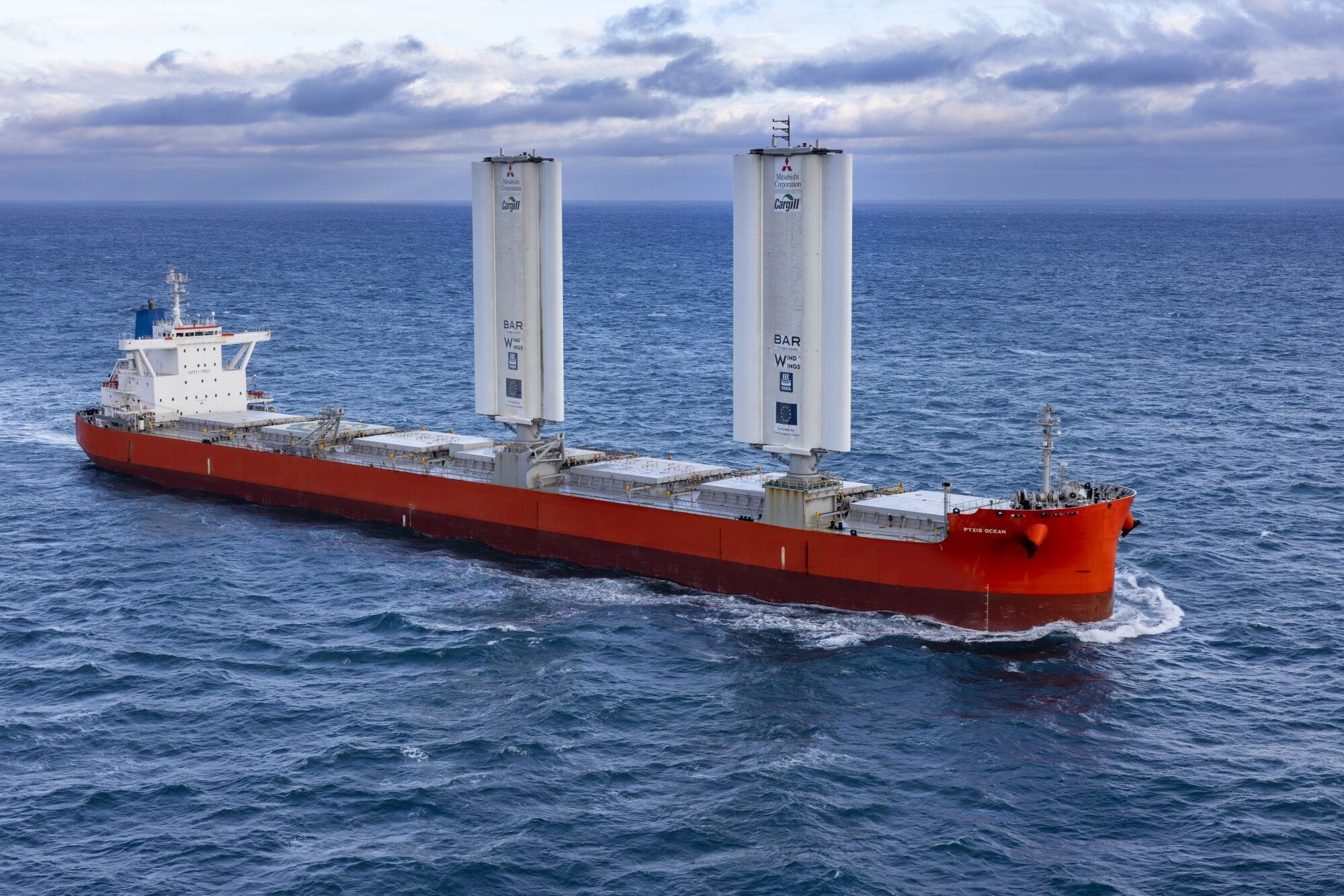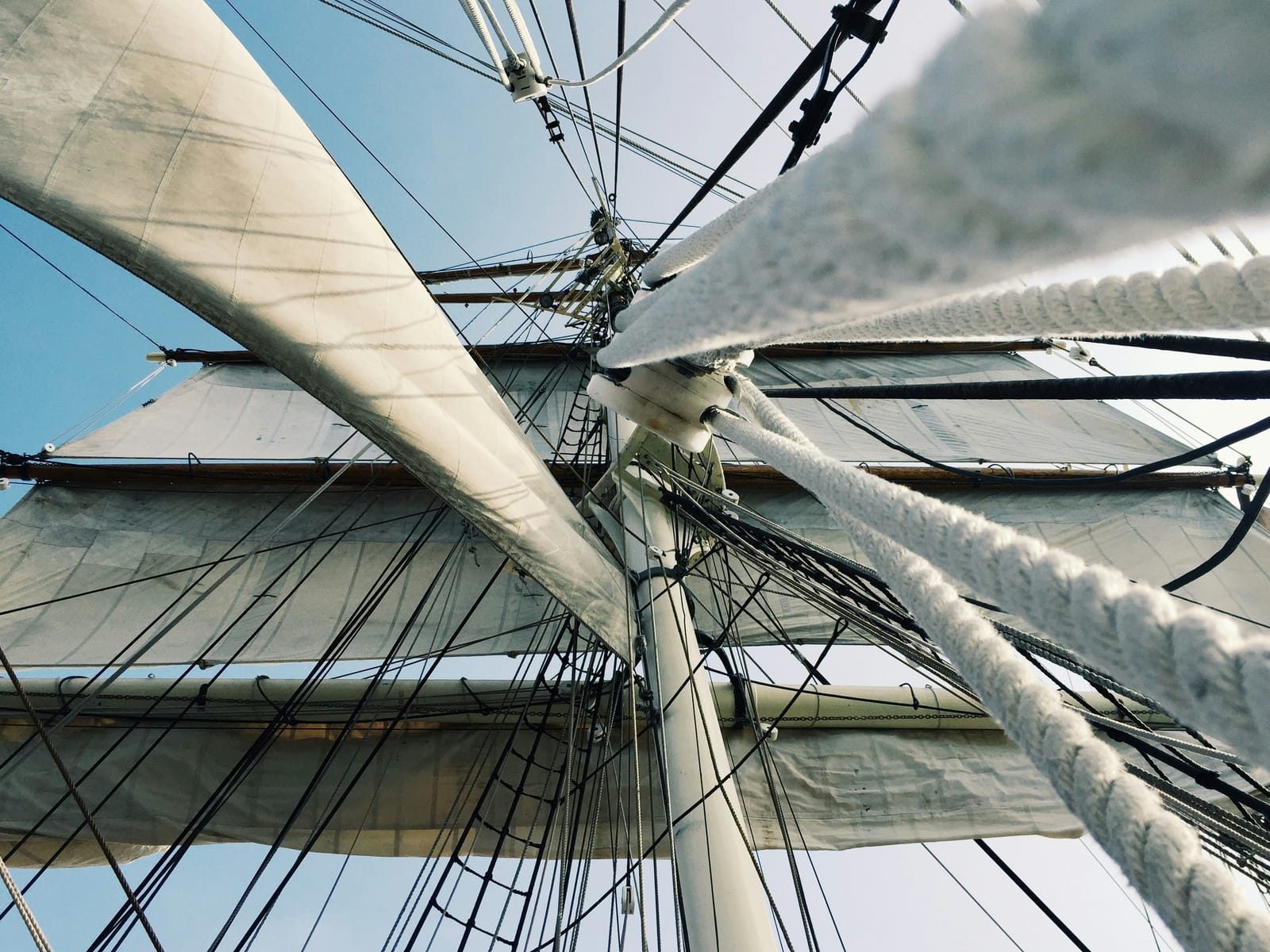"Once upon a time, ships traversed the ocean blue by way of sails and the wind that blew. Who could imagine that over a century later the same technology would return the favor..."
But the tale reigns true, global organizations who heavily rely on maritime shipping are turning to "wind-assisted propulsion" to decarbonize their transportation. Cargill Inc., in particular, is looking at adding wind-power as a capability to future cargo ships after experimenting with massive sails on ships that helped them burn less fuel during travel. The shipping industry is a notorious polluter on a global scale and one of the harder ones to clean up, but a potential solution may lie in how our ancestors used to do things, like harnessing winds to carry us to our destinations.
The Industry's Woes
Ships currently carry around 80% of the world's trade and in turn cause a massive amount of emissions to go along with it. Given the majority of the shipping industry runs on fuels derived from crude oil, its not surprising they spew out about 1 billion tons of CO2 per year. And the sector's global regulators have called it out, by setting new climate goals alongside the EU's recent introduction of a charge on carbon emissions for maritime to promote decarbonization and the use of renewable fuels among fleets. Sails can work together with renewable-fuels to create an even larger impact as well, in some cases saving 3 tons of fuel on average each day for a given ship.

Captain Cargill
Cargill recently chartered an 80,000-ton Pyxis Ocean bulk carrier which they fitted last year with "Wind Wings" that were made of steel and composite glass to act as sails. And the pilot must have gone well, seeing as they're now involved with another 5 large ships on order to run on green methanol and support wind-assisted propulsion. In order to maximize wind-assistance, shipping routes may need to be re-configured to accomodate prevailing winds - which also highlights that the sails may not work on all routes. Regardless, the re-introduction of sails possesses a unique advantage given they can be added to existing ships and not just new builds. These sails are likely going to be the most beneficial for vessels using expensive fuels, where cost savings can really add up. And although their adoption may not be widespread in the near term, they're breaking down the walls to a traditionally hard-to-decarbonize industry with immense potential.
Shifting our Mindsets
But the lesson of this story is really about recognizing and acknowledging opportunities from the past that may be more effective than our current practices. If you think about it, sails on ships are the opposite of innovation, we did it centuries ago - and we're now finding ourselves in a position to re-adopt them because it makes sense on a financial and environmental level. Similar to wind-sails, there are other methods we've used in the past and since moved away from in our endless pursuit for innovation, that can offer more effective and productive results both financially, environmentally, and socially. Keeping an open mind is being willing to take a step back as well, and the climate crisis will surely depend on our ability to do so.
If you liked this article, please consider sending it to a friend, family member, or colleague that you think may enjoy or benefit from learning more about climate change!








